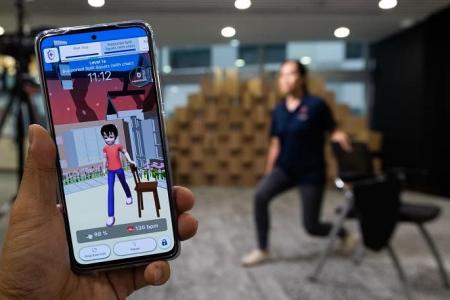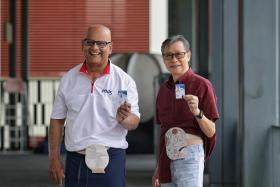What is long Covid and how is it treated?
Long Covid, also known as a post-Covid-19 condition, is the term used to describe people with symptoms that develop and linger after they contract Covid-19. Such symptoms cannot be explained by an alternative diagnosis of other medical conditions.
According to the World Health Organisation (WHO), the most common long Covid symptoms are fatigue, breathlessness and issues with mental focus. Symptoms usually develop about three months after the Covid-19 infection and persist for two months or more.
In October, the WHO called for greater awareness of long Covid because of its medium- to long-term effects on the health and wellness of patients. It said that national authorities should devote more resources to rehabilitation for patients, as well as research into the condition. The organisation noted that 10 to 20 per cent of people who contract Covid-19 go on to develop long Covid.
It is still unclear what risk factors might predispose someone to develop long Covid. WHO data shows that long Covid can develop regardless of a person’s age, level of fitness, or the variant of Covid-19 virus contracted. However, there have been more reports of women getting long Covid than men.
Associate Professor Sophia Archuleta, head and senior consultant of National University Hospital’s (NUH) division of infectious diseases, department of medicine, says symptoms of long Covid persist and fluctuate over time.
Long Covid has also developed in patients who were reinfected with Covid-19, she adds.
“In our Singapore context, we are seeing fewer long Covid cases as we have a highly vaccinated population. Vaccination is still the best way to protect ourselves against all Covid-related complications, including long Covid.”
Singapore does not have an official tally of long Covid patients in the country. Experts say it is difficult to quantify the number because there is no simple diagnostic test for long Covid. The condition is diagnosed when all other alternative explanations, such as asthma or a heart condition, have been excluded.
Treatment options
There is no specific drug treatment for long Covid. Treatment involves addressing whatever symptoms the patient has, such as breathlessness, fatigue, weakness or gastric issues.
A structured exercise regimen can be beneficial to patients with respiratory symptoms. Tan Tock Seng Hospital and local start-up Taggle Health are developing an app for such structured exercise programmes for people with long Covid. Titled MoveVid, it will be available in 2023.
WHO notes that long Covid can significantly reduce a patient’s ability to work or participate actively in society. Mental health issues can also develop from the distress this causes.
Singapore has long Covid clinics at NUH, Ng Teng Fong General Hospital and the National Centre for Infectious Diseases (NCID). Private clinic Asian Heart & Vascular Centre at Mount Elizabeth Hospital offers a post-Covid-19 medical evaluation with private clinic Respiratory Medical Associates at Mount Elizabeth Novena Hospital. Both hospitals are under IHH Healthcare Singapore.
Between five and 10 patients a week are referred to the NCID clinic, says Associate Professor Barnaby Young, head of NCID’s Singapore Infectious Disease Clinical Research Network.
The clinic advises patients on strategies to manage their symptoms. Rehabilitation and physiotherapy have been helpful for some of them.
Prof Young adds that reducing workload – thus cutting back on long hours and stress – is often an important part of long Covid management. “Almost all patients we have seen in the clinic find that their symptoms do improve with time, and that they are able to get back to a normal life and be discharged.”
Get The New Paper on your phone with the free TNP app. Download from the Apple App Store or Google Play Store now


